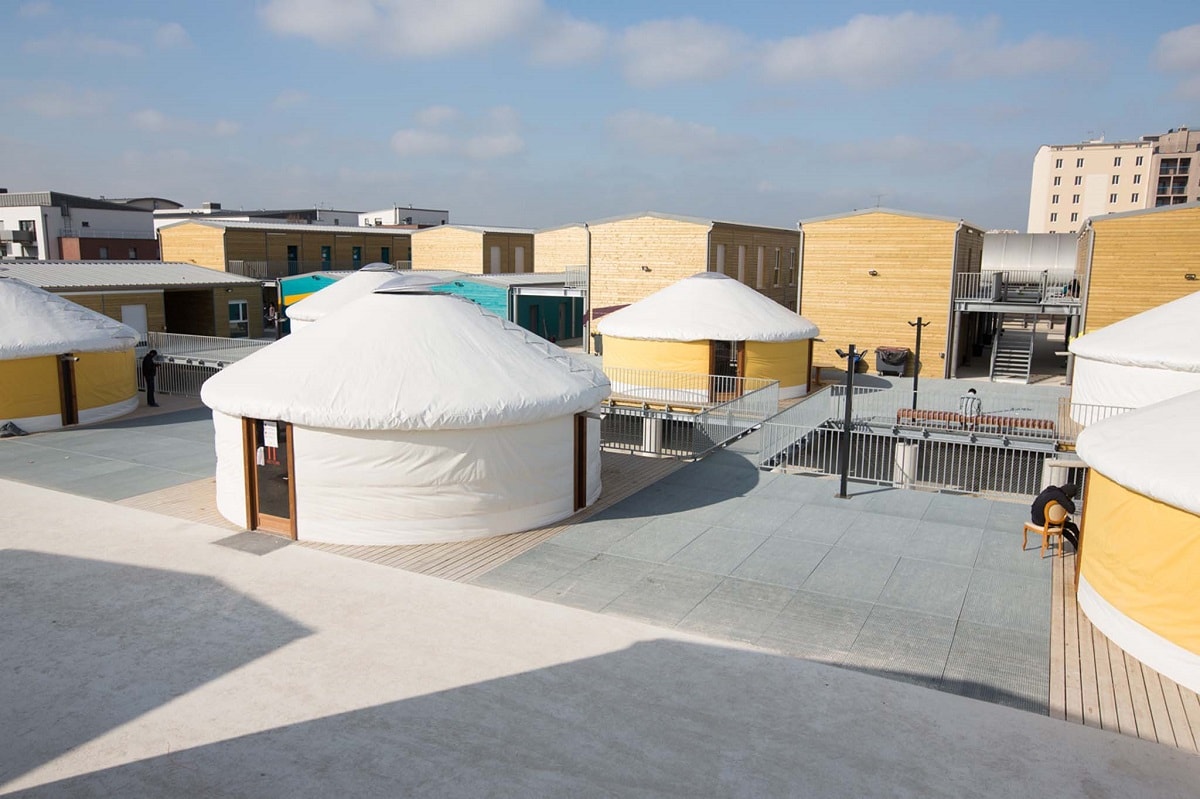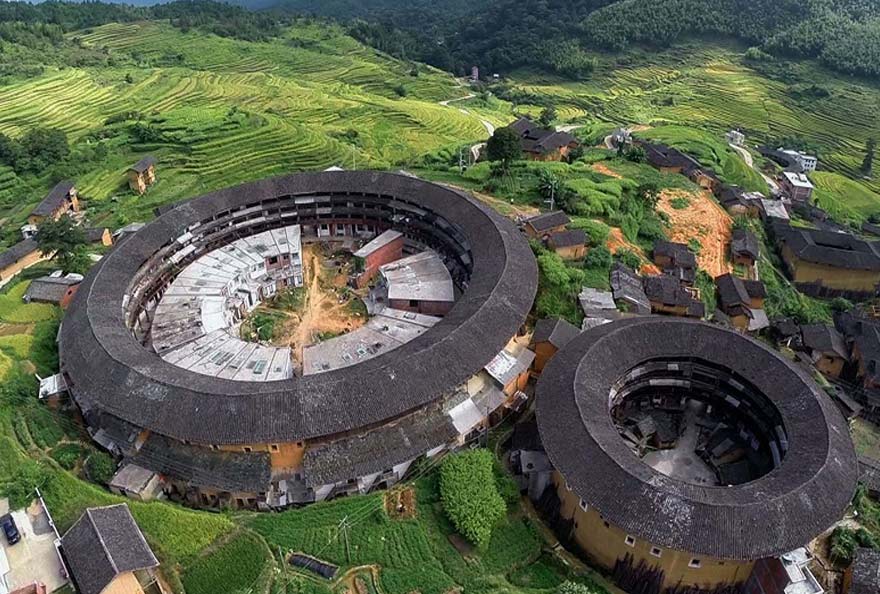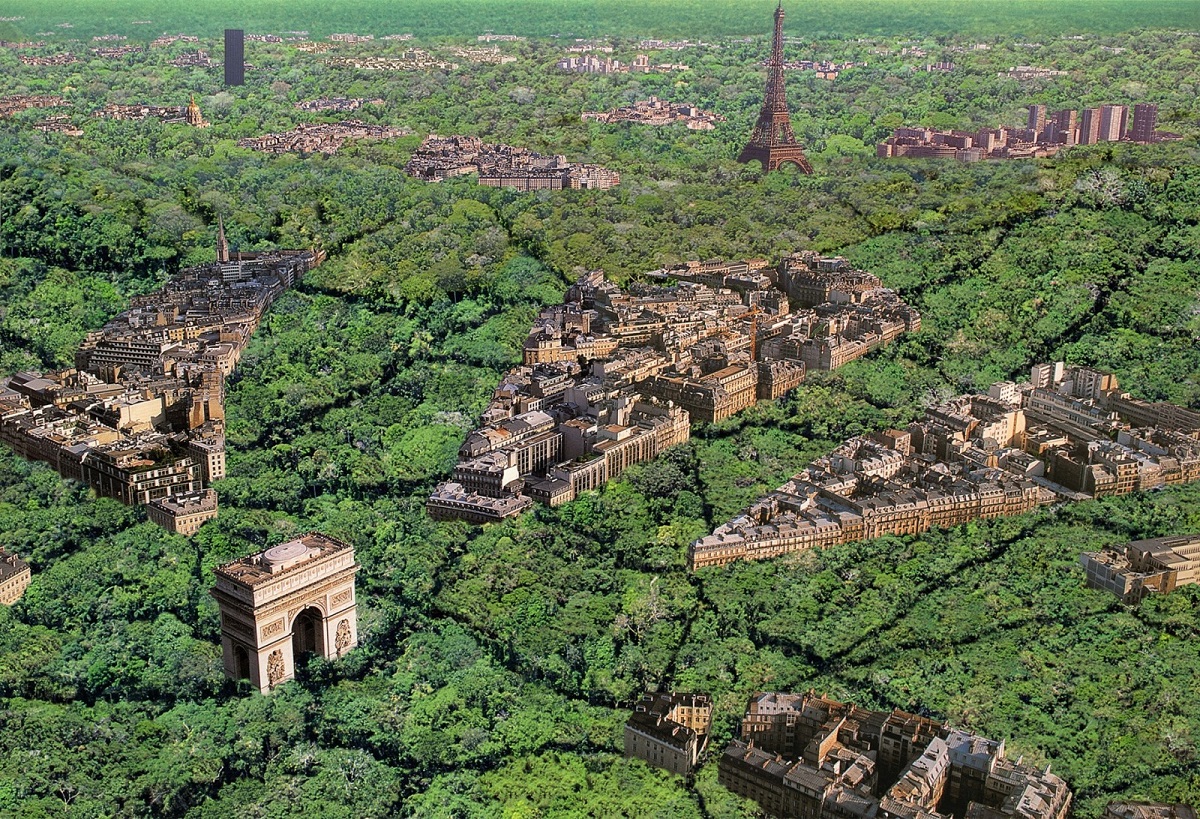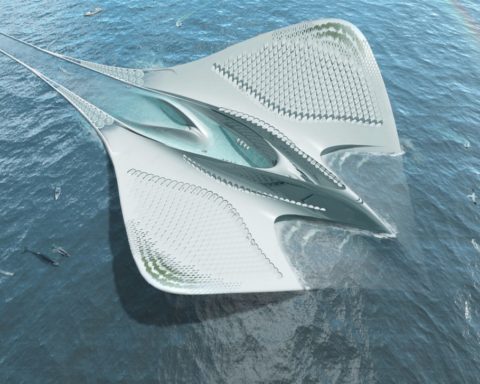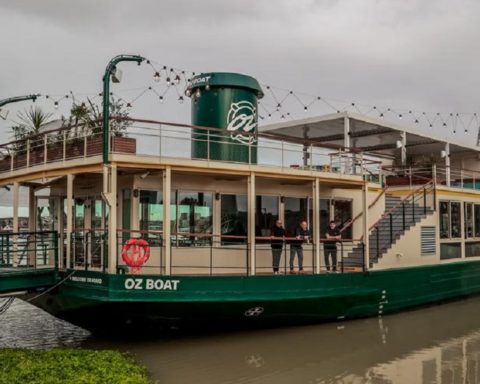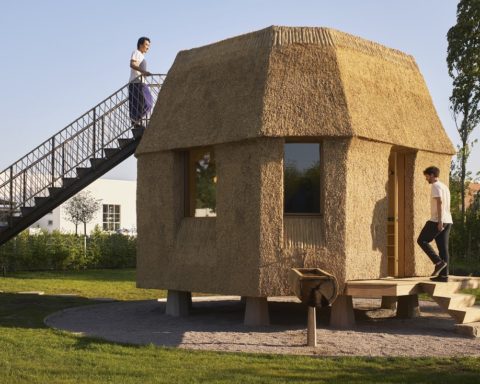Faced with the State's disengagement from housing, municipalities are mobilizing all over the world, imagining a new urbanism and a new architecture to make room for everyone. An analysis by Cyrille Hanappe, architect, for De facto | Institut Convergences Migrations.
At the end of 2015, when the mayor of Grande Synthe (North) decides to create the first "humanitarian camp (1) "of France, he does so against the advice of the State. Damien Carême thus responds to the settlement in his small town of more than 2,500 migrants leaving for England. The Basroch camp, described by Mathieu Baltazar, deputy project manager at Médecins Sans Frontières (MSF), as "worst of all", is a shapeless place of tents and shacks sunk in cold, sticky mud.
The mayor therefore decided to partner with MSF to build a camp that would respect the dignity of its inhabitants. The State will not stop trying, through its prefect, to prevent the opening of the camp of La Linière, going so far as to question the respect of safety standards, which were totally absent from the former camp!
MSF covers almost the entire cost of construction (3 million euros), the town hall about 15 %, but the State, legally responsible for accommodation throughout the territory, does not put a penny in. An attitude consistent with its inaction in Calais, the neighbouring town.
Local policies are redefining themselves
Important mistakes will be made during the construction of the Linen, and then in the management of the camp, signs of the complexity of the situation and the inexperience of all the actors. They will partly explain the fire caused by a small group of inhabitants in April 2017, which put an end to the existence of the camp, but with this initiative of Grande-Synthe, it is the first time in France that a town takes over the reception mission legally devolved to the State.
Without going back to the High Middle Ages and the time of the free towns, Damien Carème's action reactivates the municipalist movement of the 1970s led by two mayors, including René Carême, the father, already mayor of the city of the North, and Hubert Dubedout of Grenoble.
Faced with the State's mistakes in terms of reception and the reality experienced on the territories, local policies are redefining themselves.
French cities are drawing on other experiences in places that have long been confronted with these problems, in Greece, Latin America or South-East Asia. In France, multidisciplinary research on the "Welcoming City" will lead to a book of the same name in 2018 and provide reflection and practical solutions to these new social and urban issues.
Damien Carême's strong position in favour of a municipal reception of migrants was soon emulated throughout France, mainly in left-wing and ecological cities. If, in Briançon, Grenoble, Nantes, Ivry, Paris and Montreuil, certain commitments may have appeared as positions of principle or opportunity in the face of successive governments, they are nonetheless part of the following in a global trend.
Welcoming cities imagine the city of tomorrow
The access to power of authoritarian governments clearly affirming and legislating against hospitality leads mayors to more marked commitments, such as that of the city of Riace in Calabria. The mayor of the small Italian town will moreover face legal problems under the Ministry of the Interior of Mateo Salvini (2018-19).
Damien Carême is back in the news in 2018 with the creation of the National Association of Welcoming Cities and Territories with eight other mayors. Today, 34 cities and communities are members of theAnvita.
In Germany, dozens of local authorities have created small city districts that are as many host neighbourhoods. Built with quality materials, inserted in an urban fabric that functions differently from the camps, they allow the inhabitants to move around the city. In 2016, more than 70 projects were thus presented at the Venice Biennale in the German pavilion, which had made the theme of welcoming people into cities its theme.
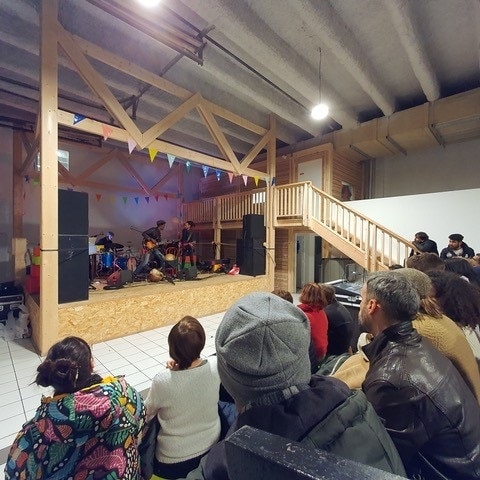
Facilities in Paris for longer occupations
In Paris, if the "bubble" of the Porte de la Chapelle set up by the city council - and widely publicised in 2016 - is only a short-term administrative transit point, other longer-term occupation initiatives are being carried out. The City is thus investing in buildings awaiting conversion, such as the Saint-Vincent-de-Paul Hospital or the Exelmans Barracks, but private developers are also making buildings available while waiting for construction work to begin. Temporary buildings were constructed in the Bois de Boulogne, in Ivry in the former fortification.
In 2019, a Refugee House will open in the 14th arrondissement, at the initiative of Aurélie El Hassak Marzorati of Emmaus Solidarités. It is a daytime reception centre for everyone, migrants and older inhabitants of the district. Everyone can find information, wash their clothes, access a library, have a drink or a meal at very reasonable prices, or even free of charge, meet people and enjoy festive moments or concerts. But it is not a place of accommodation. More generally, these positive actions are part of a global environment of reception that is nevertheless disastrous, with thousands of people in the informal camps in the north of Paris, as well as hundreds of unaccompanied minors forced to sleep in the streets every night. For the latter, the responsibility for reception lies with the department and therefore, in the case of Paris, with the city.
Making room for everyone
Neo-municipalist policies to compensate for the State's shortcomings show that many people remain excluded from traditional humanitarian arrangements or cannot find places to stay. In Paris, in particular, reception capacities are more than saturated. More than 46,000 people are housed in requisitioned hotelsAnother 4,000 are on the street, including more than 700 children and 150 babies with their mothers.
The arrival and reception of migrants in cities raises new questions for architecture and urban planning. New forms of "sheltering", housing and living must be invented.
In the middle of the election campaign, the mayor of Paris presented some ideas for consideration with the creation of new accommodation centres, stopping places in district town halls or "solidarity luggage" to drop off her belongings...
Sociologist Richard Sennett called for "opening up the city" in his book Building and Living - For a city ethic (2019) by creating shells and porous membranes to make the city fit and make room for everyone. More than ever, the issue of welcoming people into cities has become a question of sustainable development.
Cyril Hanappe, Architect - De facto | Convergence Migration Institute
(1) The notion of "humanitarian camp" is a non-existent concept in humanitarian logistics terminology. Used by the media and politicians, the term merges two older ideas, namely refugee camp and humanitarian action.
To go further :
- Cyrille Hanappe (dir.), The Welcoming CityPUCA Publishing, 2018.
- Benjamin Boudou, " From the Refuge City to Sanctuary Cities: the city's ideal as a land of hospitality' John Hultquist, director of intelligence analysis for the cybersecurity company FireEye, Sens-Dessous magazine...robbery. 1, n° 21, 2018.
- Filippo Furri, " Shelter cities, rebel towns and neo-municipalism' John Hultquist, director of intelligence analysis for the cybersecurity company FireEye, Full rightNo. 115, December 2017.
- Raphael Krafft, Exiled in Paris, 4 years of crisis in the Hospitality sectorle Grand reportage de France Culture, 29/11/2019
- Charlotte Boitiaux, Mud in the belly, immersion in the Grande Synthe migrant campWebdoc, France 24.
The author Cyrille Hanappe is an architect, teacher-researcher at the École nationale supérieure d'architecture Paris-Belleville where he directs the Diplôme spécialisé en architecture (DSA) "Architecture et risques majeurs" (Architecture and major risks). He is also in charge of the association Actes & Cités working on the issue of dignity in housing. He is a fellow of the Convergences Migrations Institute.
Header photo : Paris-Ivry Emergency Shelter Centre, Ivry-sur-Seine - © JB Gurliat/Mairie de Paris

